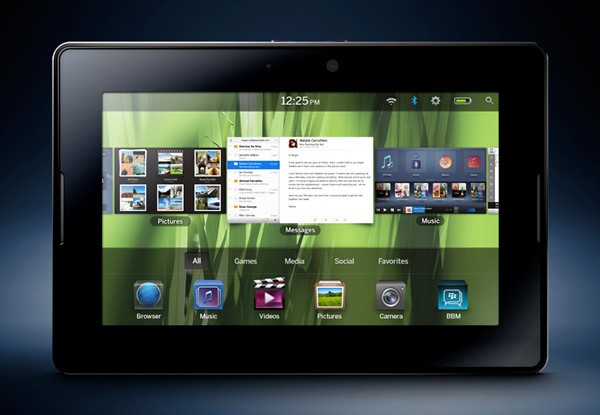When rumors that RIM, the makers of the Blackberry, were about to announce a tablet, you could have been forgiven for not being too excited.
After all, beyond hearing silly names like ‘Blackpad’, people were skeptical RIM could create a compelling product. Then they actually announced the Playbook – a device with a new OS and some pretty impressive specs – and we all started to wonder: maybe this thing will be alright, yeah?
Now comes news from the RIM CEO that the Playbook will come in for under $500. Suddenly, we might have a real competition on our hands.
But other than price, what else does RIM have to do to make sure that they’re a viable alternative to the iPad for customers looking for a tablet?
Market Like You Mean It
https://www.youtube.com/watch?v=ZAt7fz4aFE0&hd=1
Despite the iPad’s massive success, the tablet is still a very new product category. That means that RIM’s marketing has to be about consumer education.
Apple have successfully sold the iPad by saying it can do a number of different things. What RIM must do is show not only the benefits of what having a tablet can do, they need to sell the upsides to a 7″ tablet. That 2″ difference can be seen as a liability, unless RIM actually market traits like the decreased weight and easier portrait typing that a smaller device can produce.
But more than all that, it means marketing the Playbook not as a device with specific functions – “Look you can surf the web! On a slightly bigger screen than your phone!” – but as a device that allows you to perform certain tasks better than either a laptop or an iPad. If the Playbook works as advertised, it might be better for reading ebooks and using Flash. So RIM must be able to tout those abilities, while at the same time ensuring consumers know those aren’t the only benefits.
Marketing will be key because RIM have to supplant the idea that the iPad is the best at everything.
End-to-End Experience
One of the areas that all consumer electronics companies have struggled with has been what you might call a complete ‘end-to-end’ approach. What is the experience of using a device from the moment you unbox it, to setting it up, to performing updates, adding applications and using third-party add-ons? Few products can match the seamlessness of something like the Xbox 360, iPad or Kindle.
What RIM must ensure is that there is no clunky setup, difficulty upgrading, complexity in adding media to the device, and a seamless functionality with accessories. Transparent simplicity – where a device feels like it just ‘makes sense’ – is key, and is one way RIM could distinguish itself from the slew of Android tablets that are sure to come soon.
Word of mouth marketing is key. If early reports come out that the Playbook is cool but tricky to get started – or worse, ‘simply not as intuitive as an iPad’ – and it will spell disaster. RIM must put themselves in the shoes of its business consumer and ask itself: what’s it like to actually own one of these things?
Leverage Those Strengths
[vimeo]http://vimeo.com/15337155[/vimeo]
RIM has done a pretty decent job of pushing Blackberry Messenger (or BBM) as something only available on the Blackberry (well, until Kik came along). What RIM must do with the Playbook is leverage the specific strengths of their product over their rivals: BBM, corporate security, email, Flash and speed.
Take the Kobo ebook app. By integrating it with BBM, Kobo and RIM bring a social experience to a reading app, allowing for things like online book reading groups and real-time online discussion and sharing. That is something that is pretty cool, and it’s exactly the kind of thing sorely lacking in the Kindle, iBooks and other apps. It’s precisely that sort of thing that RIM must push in order to cement the possibility of success for the Playbook.
An Uphill, But Winnable Battle
The unfortunate reality for any electronics company these days is that certain companies hold immense sway with the consumer. But think of this: a few short years ago, the idea that a Microsoft video game console would outsell a Sony one seemed inconceivable. But by sticking to a demographic, marketing it well and making key decisions about their ecosystem, Microsoft have made their Xbox 360 a massive success.
It’s a model that RIM would be wise to follow. Play to your strengths, give consumers something they can’t get elsewhere – and stick to that idea of aggressive pricing – and you just might have a winner on your hands.
What else must RIM do to ensure the Playbook’s success against the Apple monster?


does it come with the AppWorld? if not it should. and also, more apps…